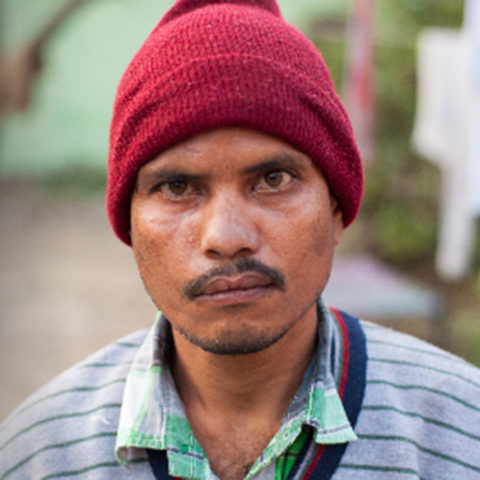
World Leprosy Day 2019: Time to end the stigma and discrimination of leprosy!
ILEP President’s Statement by Jan van Berkel
This World Leprosy Day, Sunday 27 January, provides an important opportunity to draw attention to the often-neglected aspects of leprosy – the negative social implications many persons affected by the disease experience on a daily basis.
Ending the stigma, discrimination and prejudice of leprosyis the theme of World Leprosy Day 2019.
Each year more than 200,000 women, men and children are diagnosed with leprosy, according to World Health Organisation figures. Approximately 8 out of 10 cases are from India, Brazil or Indonesia.
The majority of people diagnosed with leprosy are known to experience negative social attitudes. These can have devastating consequences on the lives of persons affected by the disease and their family members, and impact upon schooling, work, and marriage. A leprosy diagnosis also affects many people’s mental health and wellbeing.
Up to 50% of people affected by leprosy will face mental health issues, such as depression or anxiety. There is also an increased risk of suicide among people living with the disease.
Stigma towards people affected by leprosy is particularly damaging to women and girls, who may already be more socially vulnerable because of their gender. Girls’ marriage prospects are often dramatically reduced if they are diagnosed with leprosy. Women are more likely to be divorced by their husbands because of the disease and will have a lower chance of remarriage.
ILEP research conducted in 2018 revealed that 157 laws discriminating against people affected by leprosy still exist in 29 countries. States must abolish these laws and instead promote legislation that ensures human rights and a life of dignity for people affected by leprosy.
Other ways we can end stigma and discrimination is through increasing social inclusion, strengthening the community participation of persons affected, improving their access to services (economic and social), and supporting community-based rehabilitation.
On this World Leprosy Day, ILEP calls for States to use the UN Convention on the Rights of Persons with Disabilities (CRPD) as a framework to eliminate the stigma and discrimination used against people with leprosy-related disabilities. States must also implement the UN Principles and Guidelines for the Elimination of Discrimination against Persons Affected by Leprosy and their Family Members, with a focus on more vulnerable groups, such as women and children.
By working together, we can achieve zero discrimination for people affected by leprosy and be one step closer to a world with zero leprosy.
